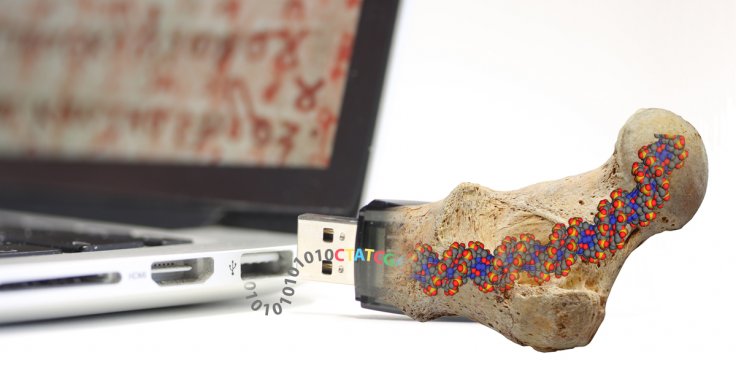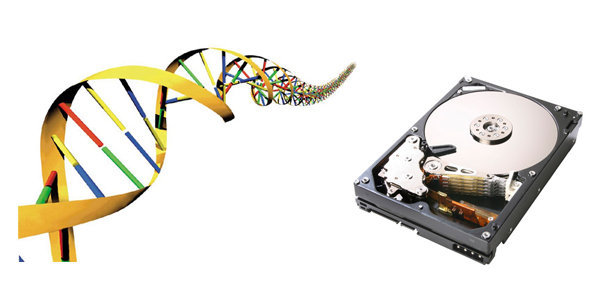DNA Hard Drive Capable of Holding Data for One MILLION YEARS

Imagine holding the information of the entire world. Now imagine storing that data and preserving it for a million years. Freaking out yet? Well, now what would you say if I said that all that information could be stored for a million freaking years in a time capsule? Not a big one- tiny, you could say.
ur conventional hard drives stores up to, well, a terabyte of data or two? What would you say if I say that this very capsule could store data so much as billions of terabytes? What if I say that it is possible to code DNA so that it could store such vast amount of information?
Freak out no more – such hard drive fabricated from DNA has been built. Before I leave you to freak out over its possible implications which are tremendously huge, here’s some awesome stuff. Basically, scientists always knew that DNA is perfect for storing information. Theoretically, one gram of DNA can store about 455 Exabytes (one Exabyte is equivalent to one billion gigabytes). This space is enough to store whole of Wikipedia and Facebook. How cool is that?
Interestingly, storing information on DNA is quite simple. One simply has to program the A and C base pairs of DNA as a binary ‘0’, and the T and G as a ‘1’. The question is, how long would the data be stored?
In 2013, scientists managed to sequence genetic code in 700,000-year-old bones of a horse. The problem is the storage of the code. The conditions of storage must be well defined. Otherwise, on exposure to the environment, it can change and breakdown. Recently another type of data storage method was being talked about- the IBM’s racetrack memory to kill the hard drive is invented.

In order to do that, scientists encoded ‘Switzerland’s Federal Charter of 1921’ and ‘The Methods of Mechanical Theorems’ by Archimedes onto a DNA strand. That sums up to 83 kilobytes of data. These strands of DNA were then encapsulated into tiny glass spheres, about 10 nanometers in diameter. Then this glass packaging was compared to other methods of packaging by subjecting each package to temperature conditions about 60 to 70 degree Celsius conditions that replicated the chemical degradation that would usually occur over hundreds of years, all crammed into a few destructive weeks.
Even after this sped-up degradation process, it was found that the DNA inside the glass spheres could be recovered using a simple fluoride solution. The data could still be read. The glass spheres in this case worked pretty much like fossilized bones.
It is predicted that the data on the DNA strand could be preserved for more than a million years provided it is stored below -18 degrees Celsius. It could be stored for more than a thousand years if stored below 10 degrees at specific conditions.
The major setback to this DNA hard drive is its cost- one hard drive could be as expensive as $1500. Researchers and scientists are already storing data into these DNA hard drives. And the band OK Go are also storing their records in it.
I wonder if you can handle the overwhelming awesomeness when you realize that the whole of Wikipedia and Facebook could be stored in one small time capsule.
Can DNA hard drive change the way we store data? Tell us in comments below!
No comments:
Post a Comment